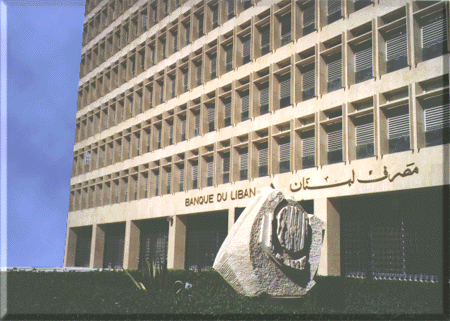 BEIRUT -Once a sleepy backwater where a whole day could pass without a single share changing hands, the Beirut bourse has shaken off political turmoil to approach new highs, as petrodollars flow in from the booming Arab Gulf.Beirut
BEIRUT -Once a sleepy backwater where a whole day could pass without a single share changing hands, the Beirut bourse has shaken off political turmoil to approach new highs, as petrodollars flow in from the booming Arab Gulf.Beirut
Traders said the valuations of Lebanese shares were looking increasingly attractive compared to companies in the Arab Gulf, where soaring oil revenues, high investor liquidity and strong corporate results have driven stock markets to record highs.
They predict the Beirut bourse, whose benchmark BLOM Stock Index . BLSI reached around 1,039 in early December versus 636.83 at the end of 2004 and an all-time low of 388.39 in October 2001, is in prime position to catch some of that action.
But traders and analysts say it could do a lot more to attract those petrodollars as economists express increasing concern that Gulf shares are over-priced.
“Our stock market was undervalued compared to regional stock markets and our shares were much lower,” said Tareq Farah, head of financial markets at Beirut’s Financial Funds Advisors.
“With Gulf liquidity due to the high oil price there is an excess of cash. They don’t know what to do with it. We are getting a little smattering of this cash but on a small bourse like this everything we can get makes a big difference.”
Bouncing back
Despite the bombings, assassinations and political turmoil dogging Beirut, traders say the only way is up for its bourse, reopened in 1996 after the 1975-1990 civil war.
Lebanon’s biggest company and market mainstay, Solidere SOLA.BY, has recovered from record losses in 2000 to make $23 million profit in the third quarter of this year.
The real estate firm’s shares dropped 30 percent after the Feb. 14 murder of Rafik al-Hariri, Lebanon’s former prime minister and Solidere founder.
But they have bounced back and now hover close to the 1997 highs of $15, compared to less than $5 in 2003.
Traders say the withdrawal of Syrian forces in April, ending a 29-year military presence after street protests sparked by Hariri’s killing, renewed confidence in the country’s political future. Many Lebanese blame Syria for Hariri’s death, claims that Damascus strongly denies.
BLOM Bank BLBD.BY now stands above $50, almost twice its value in January. Bank Audi’s AUSR.BY global depositary receipts (GDRs) have more than doubled since January to around $48.
Bourse chairman Khalaf said the exchange attracted interest from European and U.S. funds for the first time this year, though international investors have tended to shun Arab markets, partly due to their reputation for weak regulations and limits on foreign ownership.
He said a law was being prepared to create an independent regulator for the stock exchange, improve transparency and eliminate insider trading, a problem in many emerging markets.
“There is a huge buzz for Lebanon if we can rise to the challenge,” said Nabil Chaya, head of treasury and capital markets at Bank Audi, a leading Lebanese bank.
“Are we benefiting from the oil boom? Yes, we are but not as much as we could be,” he said, adding that Beirut would benefit from new laws and an independent regulator with teeth.
To boost trade during the recent downturn, the bourse introduced continuous trading, installed a cutting-edge trading system and widened its threshold. In 2001, it allowed instruments such as GDRs, preferred shares and funds, attracting eight new listings.
It now hopes to introduce remote trading within a year and electronic trading via the Internet in 18 months.
Crying out for privatisation
Traders say now is the time for Lebanon to make good on long-delayed promises of privatisation as only more listings of big-caps will boost liquidity long term.
Middle East Airlines, Lebanon’s flag carrier, which is 99 percent owned by the central bank, says it plans to list on the Beirut bourse from next summer.
Lebanon’s two mobile phone networks and part of the fixed-line operator are all seen as privatisation candidates, although political bickering has blocked the process for years.
Bankers say an international debt aid conference taking place in Lebanon next year with U.S. backing should unveil an extensive reform programme and boost investor confidence.
“Today, investors come and find shares in a few big companies and banks and buy them, but the more choice you give them the more they will buy,” Khalaf said.
“If there is privatisation, it would have a lot of impact on trading volume and value on the Beirut bourse, since the world’s bourses have been boosted by privatisation. The market capitalisation of privatisation is billions of dollars.”
With prices rising, traders see Beirut attracting more IPOs, though it still struggles to lure big fish, even Lebanese ones.
To the dismay of Lebanese bourse officials, Investcom INVT.DI, a telecoms firm controlled by Lebanon’s Mikati family, shunned Beirut in October to list on Dubai’s new International Financial Exchange.
“We must do more to bring confidence to Lebanon,” Merrill Lynch’s Makram Zaccour told a recent investment conference.



